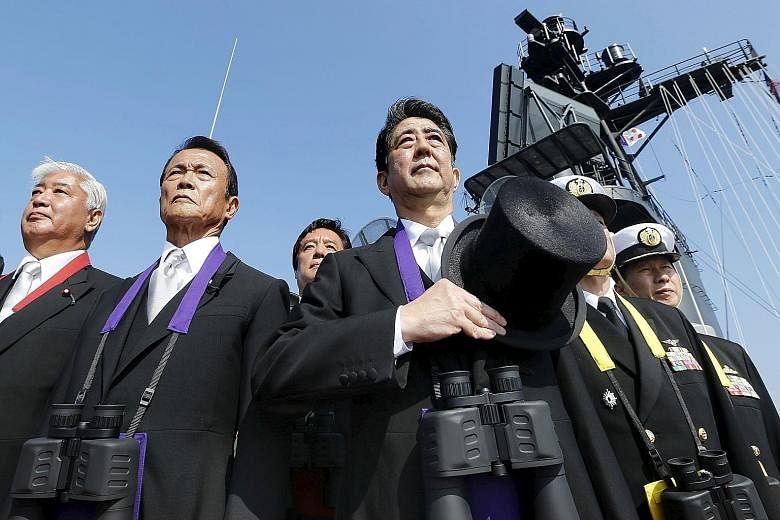TOKYO • Japan's defence budget for the next fiscal year is likely to top 5 trillion yen (S$57.3 billion) for the first time, government sources say, as the military prepares for an expanded role under new security legislation.
The Defence Ministry had in August requested a budget of 5.09 trillion, but the Nikkei business daily said yesterday that the figure would be shaved to 5.04 trillion yen, up from 4.98 trillion this fiscal year and the fourth consecutive rise since Prime Minister Shinzo Abe took office in 2012 and ended the decline in defence spending.
A weakened yen, however, means extra spending would not necessarily boost Tokyo's ability to buy high-tech weaponry, much of which comes from the US.
Parliament in September enacted hotly contested legislation that would allow Japan's military to fight overseas for the first time since its defeat in World War II, in defence of a friendly country that came under attack.
The Defence Ministry's August budget request included spending to fortify a far-flung island chain in the East China Sea, close to territory also claimed by Beijing.
Faced with China's increasing military assertiveness, Japan has been shifting from defending its northern regions from a diminished Russian threat to deploying a lighter, more mobile force in the East China Sea and Western Pacific.
Japan administers a chain of uninhabited islands in the East China Sea called Senkaku by Tokyo and Diaoyu by Beijing, which also claims ownership of the islets.
The budget for the 12 months from April, expected to be finalised by the Cabinet on Dec 24, will also include funding for a controversial US military base to replace the US Marine Corps' Futenma air base on the island of Okinawa, host to the bulk of US military forces in Japan.
The central government is locked in a court battle with Okinawa governor Takeshi Onaga over the planned move of the air base to a less crowded part of Okinawa, after Mr Onaga revoked a permit for landfill work needed for the new base.
The United States and Japan agreed in 1996 to close Futenma and move its functions elsewhere on the island, but relocation stalled due to opposition from Okinawa residents worried about noise, pollution and crime and resentful of what they see as an unfair burden for the allies' security pact.
REUTERS

